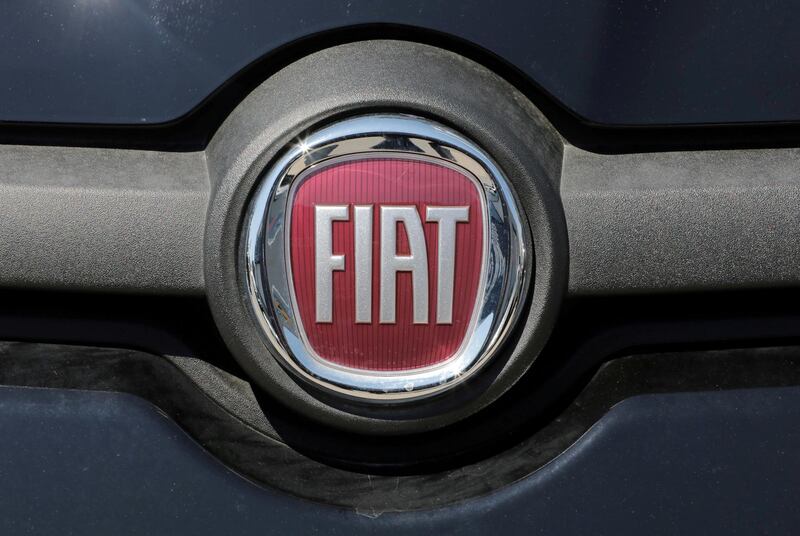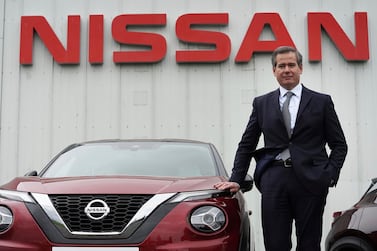Fiat Chrysler Automobiles and French car maker PSA Group confirmed talks on a possible combination, pointing to an intensifying push for global consolidation in an industry struggling with a downturn and expensive shift to electric cars.
Fiat and PSA confirmed on Wednesday in separate statements that they are holding discussions aimed at creating one of the world’s leading car makers. PSA shares rose the most in more than a year, while Fiat jumped as much as 11 per cent.
The companies did not give details on what any deal would look like. Under one recent proposal, PSA, the maker of Peugeot brand cars would be the acquiring entity and the French side would have an advantage in terms of board seats. PSA's board is holding an extraordinary meeting later today, sources have said.
A merger of Fiat Chrysler and PSA, the second-biggest car seller in Europe, would create a regional powerhouse to rival Volkswagen, and have a stock market value of about $49 billion (Dh180bn) – comparable to Japan's Honda Motors. The tie-up would also bring together two car-making dynasties, the billionaire Agnelli clan in Italy and the Peugeot family of France.
The talks come several months after Fiat and PSA, led by chief executive Carlos Tavares, explored a partnership on pooling investment to build cars in Europe, and following the collapse of negotiations between Fiat and French competitor Renault in June.
Under a recent proposal, Fiat and PSA have discussed making Mr Tavares chief executive of the combined company while John Elkann, scion of the Italian-American car maker's founding Agnelli family, would be chairman.
The French government would play a key role in any deal because France is one of the biggest owners of PSA, whose brands include Peugeot, Opel and Citroen.
Analysts greeted word of a possible deal warmly. "In our view the combination of FCA and PSA has more logic than the previously attempted FCA-RNO deal and has a far greater chance of success," Max Warburton, a Bernstein analyst, wrote in a note.
Fiat shares rose 8.5 per cent to €12.75 (Dh52.07) at 9.17am in Milan, while PSA stock was up 7.7 per cent to €26.84 in Paris.
Car manufacturers face tremendous pressure to combine forces and share costs from platform development to manufacturing and purchasing as they battle through trade wars, a global slowdown and an expensive shift towards electrification and autonomous driving.
Volkswagen in July said it will work with Ford Motors on electric and self-driving car technology, while Toyota Motors is strengthening ties with partners such as Subaru and China’s BYD.
In Europe, PSA and Fiat Chrysler face the additional burden of new emissions regulations that will force the industry to meet stringent fleet requirements next year.
“If completed, we believe this should ignite more rational industry behaviour around allocation of capital, and this particular merger makes materially more sense than a potential FCA-Renault merger,” said Arndt Ellinghorst, an Evercore analyst. He said it is an opportunity to achieve “gross synergies” above €7 billion by 2023 due to overlapping businesses in Europe, Latin America and China.
The companies’ Chinese businesses have been trailing competition and it’s unlikely that a merger would quickly reignite their revenue growth in the world’s biggest car market. China’s Dongfeng Motor, which holds about 12 per cent of PSA, could also have a say on the deal.
PSA has been floated as a logical merger partner with Fiat, because of their complementary product and geographic fit, and the two sides talked about a possible partnership earlier this year. However, the Italian-American car company instead pursued a deal with Renault. Those talks were called off in June amid opposition from the French government and a lack of support from Renault’s Japanese alliance partner Nissan Motors.







